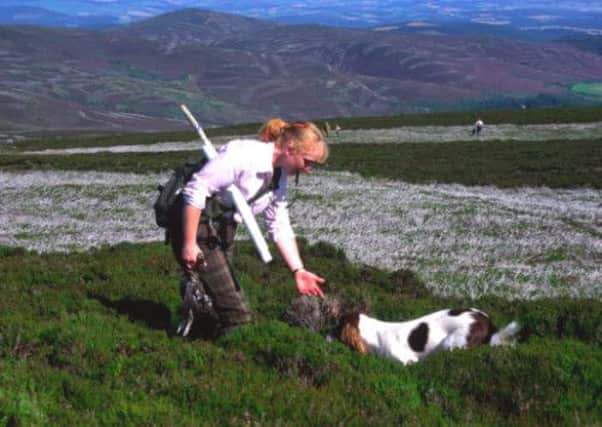Benefits of managing Scotland’s natural assets


Scotland is renowned for some of the world’s finest natural scenery and wildlife, not to mention country sports.
A paradoxical statement, you may think, but what many don’t know is that the management of Scotland’s landscape for high-yield country sports – such as deerstalking and grouse shooting – allows not only game, but also rare wildlife, to thrive. All three elements work in harmony to generate tourism revenue for areas that have little other income. In short, for fragile rural communities, the year-round management of vast swathes of land in Scotland for country sports is integral to economic survival, but also preservation of the natural landscape and a healthy ecosystem.
Advertisement
Hide AdAdvertisement
Hide AdMost game and wildlife management in Scotland is carried out to exacting standards, but there is always room to improve. On a small but geographically varied island like Britain, there have always been different approaches to land use which can sometimes conflict with each other. As so well depicted in recent episodes of the BBC nature programme, The Hebrides, land managers carry a heavy burden as custodians of our rural places to get the balance just right. Yet this burden is regarded by those in the field as a privileged responsibility and one which they are honoured to shoulder. Not generally comfortable with self-promotion, those who manage Scotland’s wild places are at last coming out and sharing with the world the various ways in which the land’s rich biodiversity benefits from their vocational commitment. This commitment is now being recognised through the Wildlife Estates Scotland initiative – which defines an accredited standard of excellence for rural land management.
‘Accreditation’
The concept of wildlife estates “accreditation” was first promoted by the European Wildlife Estates initiative from 2004. From this followed Wildlife Estates Scotland (WES) in 2010, giving those estates adhering to specific best practice methods some formal, industry-backed recognition. Some 22 European countries are now signed up.
WES accreditation was launched against the backdrop of game management heritage, best practice methods and also the wider interests of the public and politicians. The landowner membership organisation Scottish Land & Estates took the lead in developing the project and initially attracted more than 250 of its members who were willing to commit to independent assessment of their management style. A steering group gave a real breadth to the project, with membership deriving from experienced land managers, the Cairngorms National Park Authority, the Game & Wildlife Conservation Trust, Scottish Natural Heritage and the RSPB.
Scotland’s estates, farms and reserves which apply for “accreditation” through WES are independently assessed through a thorough and rigorous examination by an independent assessment body – Scottish Food Quality Certification – on their game and wildlife management plans, and how they apply these, plus best practice guidance codes. The assessors also look at recording and maintenance of species and habitats, conservation and collaborative work. The integration of game management with farming, forestry and tourism is also thoroughly reviewed, as well as social, economic and cultural aspects such as employment, community work and communications. Scottish Natural Heritage provided the financial support to cover the early stages of the project and this funding has enabled WES to roll out accreditation from early 2013. In return for this support, WES will input species and habitat data into the National Biodiversity Network.
Accreditation under WES was officially launched earlier this year by environment minister Paul Wheelhouse who strongly encouraged those not already signed up to register with WES, noting that: “It is in our collective interest to protect and improve Scotland’s rural environment and wildlife for present and future generations.”
Participants
WES needs as many participants as possible to ensure biodiversity protection in Scotland’s rural areas and there are discussions with the Scottish Government and others to identify incentives to encourage and reward accreditation. Through constant improvement in data on species and habitats, WES will strive to build an evidence base to help inform policy-making, management decisions and conflict resolution into the future.
Public and political scrutiny of country sports is intense and we are under no illusion that the task ahead for WES is a challenging one that won’t be without its critics. As they say, “no pain, no gain”. We have unwavering confidence, however, that land managers are ready to step up and be recognised – after all, no less than the future success of Scotland’s game management sector, and all that goes with it, hangs in the balance.
• Ross Macleod is lead officer, WES Project (Wildlife Estates Scotland)